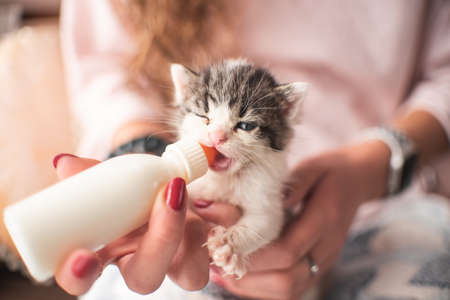Understanding the Importance of Hamster Veterinary Care
When it comes to caring for your beloved hamster in the UK, seeking specialist veterinary care is not just a precaution—its essential for their wellbeing. Unlike cats and dogs, hamsters are classed as small furries and have unique needs that require knowledgeable professionals. British pet owners often underestimate the importance of regular health checks for their little companions, but hamsters can be prone to specific health issues such as wet tail, dental problems, respiratory infections, and skin conditions. These ailments can progress rapidly due to their small size and fast metabolism. Early intervention by a vet experienced with small mammals can make all the difference. By understanding the distinct health challenges faced by hamsters and recognising the necessity of tailored veterinary care, youll be better equipped to provide a long, happy life for your furry friend here in the UK.
Finding the Right Exotic Vet in Your Area
When it comes to hamster veterinary care in the UK, choosing an experienced and knowledgeable vet is crucial. Not all veterinary practices have expertise with small exotic pets like hamsters, so a little research can make a significant difference in your pet’s health. Here are practical tips to help you find the right exotic vet near you, along with what to look for in British veterinary clinics.
What to Look for in a UK Veterinary Practice
When searching for a suitable vet, consider these key factors:
| Criteria | Details to Check |
|---|---|
| Exotic Pet Experience | Ask if the practice regularly treats hamsters or other small mammals. Inquire about specific cases they’ve handled. |
| Accreditations | Look for Royal College of Veterinary Surgeons (RCVS) accreditation, and check if they’re listed as an “Exotics” practice on the RCVS “Find a Vet” tool. |
| Qualified Staff | Ensure at least one veterinarian has a special interest or advanced qualification in exotic animal medicine (CertAVP(ZooMed), for example). |
| Facilities | Check if their facilities cater for small mammals (e.g., quiet waiting areas, specialised equipment). |
| Emergency Cover | Find out if 24/7 emergency care is available or if they have links with nearby exotic specialists. |
Professional Accreditations & Trusted Resources
The Royal College of Veterinary Surgeons (RCVS) sets professional standards for vets in the UK. A practice with RCVS accreditation upholds strict animal welfare guidelines. Additionally, membership in associations such as the British Small Animal Veterinary Association (BSAVA) or British Veterinary Zoological Society (BVZS) indicates further commitment to ongoing learning about exotic species.
How to Start Your Search Locally
You can use the RCVS “Find a Vet” website by entering your postcode and filtering by exotics experience. Recommendations from local hamster owners’ groups, reputable breeders, or rescue centres can also be invaluable sources of first-hand feedback about local practices.
Checklist Before Booking an Appointment:
- Confirm the vet’s experience with hamsters specifically.
- Avoid practices that only see cats and dogs unless they have an exotics specialist on staff.
- Prepare questions about their approach to hamster anaesthesia, surgery, and aftercare.
- If possible, schedule a preliminary visit just to introduce your hamster and discuss future care needs.
Selecting a well-qualified vet ensures that your hamster receives appropriate medical attention throughout its life. By doing your homework and knowing what standards to expect from UK veterinary practices, you’ll provide your furry friend with the best possible care environment.
![]()
3. Preparing for Your Visit: What to Bring and Expect
Transporting Your Hamster Safely
Before heading to the vet, it is crucial to ensure your hamster’s journey is as stress-free as possible. Use a secure, well-ventilated carrier designed for small pets—ideally one with a solid base and minimal openings to prevent escapes. Line the bottom with familiar bedding from their cage to provide comfort and a sense of security. Avoid using cardboard boxes, as hamsters can chew through them quickly. If travelling by car or public transport, keep the carrier stable and out of direct sunlight. Cover part of the carrier with a light towel if the weather is chilly or if your hamster needs extra calm.
Essential Information to Provide
When you arrive at the veterinary practice, you’ll be asked for details about your hamster’s age, diet, recent behaviour, and any symptoms you’ve observed. Bring along any medical records or information about previous treatments if available. It’s also helpful to note changes in appetite, droppings, or activity levels over the past few days. If your vet hasn’t seen your hamster before, providing information about their usual living conditions (such as cage size, type of bedding, and exercise routine) will help the vet make an informed assessment.
What Happens During a Typical UK Vet Appointment
At most UK veterinary clinics, you’ll first check in at reception and may need to wait briefly before being called in. The vet will begin by gently examining your hamster—checking their eyes, ears, teeth, fur, and skin for any abnormalities. You may be asked additional questions about their habits and environment. Depending on your concerns, the vet might recommend further diagnostics or treatments. Rest assured that UK vets are trained to handle small animals with care and patience; they will explain each step clearly so you know what to expect. After the examination, you’ll have time to ask questions or discuss follow-up care specific to your hamster’s needs.
4. Costs, Pet Insurance, and NHS Myths
When considering veterinary care for your hamster in the UK, it’s important to be aware of the financial aspects involved. Hamster owners often underestimate the costs associated with proper veterinary attention, and there are also common misconceptions regarding what is covered by the NHS. Below, we’ll break down typical expenses, explain pet insurance options, and clarify some frequently misunderstood points about healthcare for small pets.
Expected Costs for Hamster Care in the UK
The price of veterinary services for hamsters can vary depending on location, the complexity of treatment, and individual clinic charges. Here’s a table to give you a general idea of what to expect:
| Treatment Type | Estimated Cost (£) |
|---|---|
| Consultation (basic check-up) | £25–£40 |
| Emergency Appointment | £50–£100+ |
| Medication (per course) | £10–£30 |
| Surgical Procedures (e.g. tumour removal) | £60–£150+ |
| Nail Clipping/Minor Procedures | £5–£15 |
Please note that prices can fluctuate based on region and vet expertise. Always ask for an estimate before any treatment begins.
Understanding Pet Insurance for Hamsters
Unlike dogs and cats, not all insurers in the UK offer policies for small mammals like hamsters. However, some specialist providers do exist. Pet insurance may help cover unexpected vet bills for accidents or sudden illness, but pre-existing conditions and routine care are generally excluded. When considering insurance:
- Check if the policy specifically includes hamsters.
- Understand what types of treatments are covered and any excess fees.
- Read the fine print regarding exclusions and claim limits.
If insurance isn’t available or feasible, consider setting aside an emergency fund dedicated to your hamster’s healthcare needs.
NHS Coverage: Clearing Up Common Myths
A widespread misconception among new pet owners is that the NHS will provide veterinary care for their animals. In reality, the NHS is exclusively for human healthcare in the UK. All veterinary services, whether for a hamster or any other pet, must be paid privately through registered veterinary practices. There are no government-funded veterinary treatments under the NHS scheme.
Key Takeaways for Responsible Owners
- Budget ahead for both routine and emergency care; even small pets can incur significant expenses.
- Research local vets experienced in exotic or small mammal care before you need them.
- If possible, invest in appropriate pet insurance or build a savings buffer specifically for vet bills.
- Remember: The NHS does not cover any aspect of animal healthcare in the UK.
By understanding these aspects early on, you’ll be better prepared to provide your hamster with prompt and effective veterinary care without unpleasant surprises.
5. Aftercare and Monitoring at Home
Supporting Your Hamster’s Recovery
Once you’ve returned home from the vet, your hamster will need a calm and comfortable environment to recover. Make sure their cage is clean, quiet, and away from draughts or sudden temperature changes. Avoid handling your hamster more than necessary in the first 24 hours unless your vet has advised otherwise. This allows them time to rest and feel secure.
What to Watch For
It’s important to keep a close eye on your hamster after a veterinary visit, especially if they have had treatment or surgery. Watch for signs such as lethargy, reduced appetite, difficulty breathing, excessive scratching, discharge from eyes or nose, or any swelling around wounds. If your hamster seems unusually quiet or is hiding more than usual, this could be a sign that something is wrong.
Administering Medication
If your vet has prescribed medication, always follow the instructions carefully. Use any syringes, pipettes, or other tools provided by your vet for accurate dosing. If you’re unsure how to give medicine, don’t hesitate to ask your vet for a demonstration before you leave the surgery. You might find it helpful to wrap your hamster gently in a soft towel (often called the ‘burrito method’) to keep them still during medication time.
Top Tips for Giving Medicine
- Be patient and gentle – never forcefully open your hamster’s mouth
- Try mixing liquid medication with a small amount of favourite food if your vet says it’s suitable
- Keep track of doses using a simple chart or reminder on your phone
Staying in Touch With Your Vet
If you’re ever unsure about your hamster’s progress or if symptoms worsen, contact your vet promptly. Most UK vets are happy to offer advice over the phone or arrange a follow-up appointment if needed. Early intervention can make all the difference, so never feel embarrassed about seeking help. Remember: you know your pet best, and acting quickly is always the right choice if you have concerns.
6. Emergency Care: What Constitutes an Urgent Situation
Hamsters are small and delicate pets, so being able to spot the signs of an emergency is crucial for their well-being. In the UK, prompt action can make all the difference in a crisis. Here’s what every responsible hamster owner should know about recognising emergencies and seeking immediate veterinary care.
Identifying Hamster Emergencies
Some symptoms require swift intervention. If your hamster shows any of the following signs, it’s time to act quickly:
- Severe or sudden breathing difficulties
- Heavy bleeding that doesn’t stop within a few minutes
- Limpness or unresponsiveness
- Continuous diarrhoea (especially if accompanied by lethargy)
- Noticeable wounds, broken bones, or bites
- Sudden swelling around the face or body
If you’re ever unsure, remember: it’s always better to err on the side of caution and contact a vet.
Steps to Take in an Emergency
- Stay calm—your hamster will sense your stress, so keep your movements gentle and steady.
- Place your hamster in a safe, secure travel carrier lined with soft bedding.
- Contact your local exotic pet vet immediately and describe the symptoms clearly.
If it’s outside of normal working hours, don’t wait. Most areas in the UK have emergency veterinary services that operate after-hours—search online for “24-hour exotic vet near me” or call your regular vet for their out-of-hours contact details.
After-Hours Options in the UK
Many veterinary practices partner with dedicated emergency clinics or provide their own rota system for urgent cases. In London and larger cities, there are often 24/7 animal hospitals experienced with small mammals like hamsters. In rural areas, you may be directed to a nearby town or city. Always keep your hamster’s health records handy and know where your nearest emergency vet is located before a problem arises.
A Friendly Reminder
No one wants to imagine their pet in distress, but being prepared ensures you can act decisively if needed. Familiarise yourself with local resources and save important phone numbers on your mobile. Quick thinking and prompt action could save your hamster’s life, giving you both peace of mind and many happy days together ahead.


